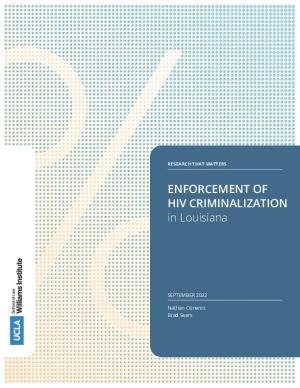Enforcement of HIV Criminalization in Louisiana
Using data obtained from the Louisiana Incident-Based Reporting System and from the state’s most populous parishes, this study examines the enforcement of HIV criminalization laws in Louisiana since 2011.

